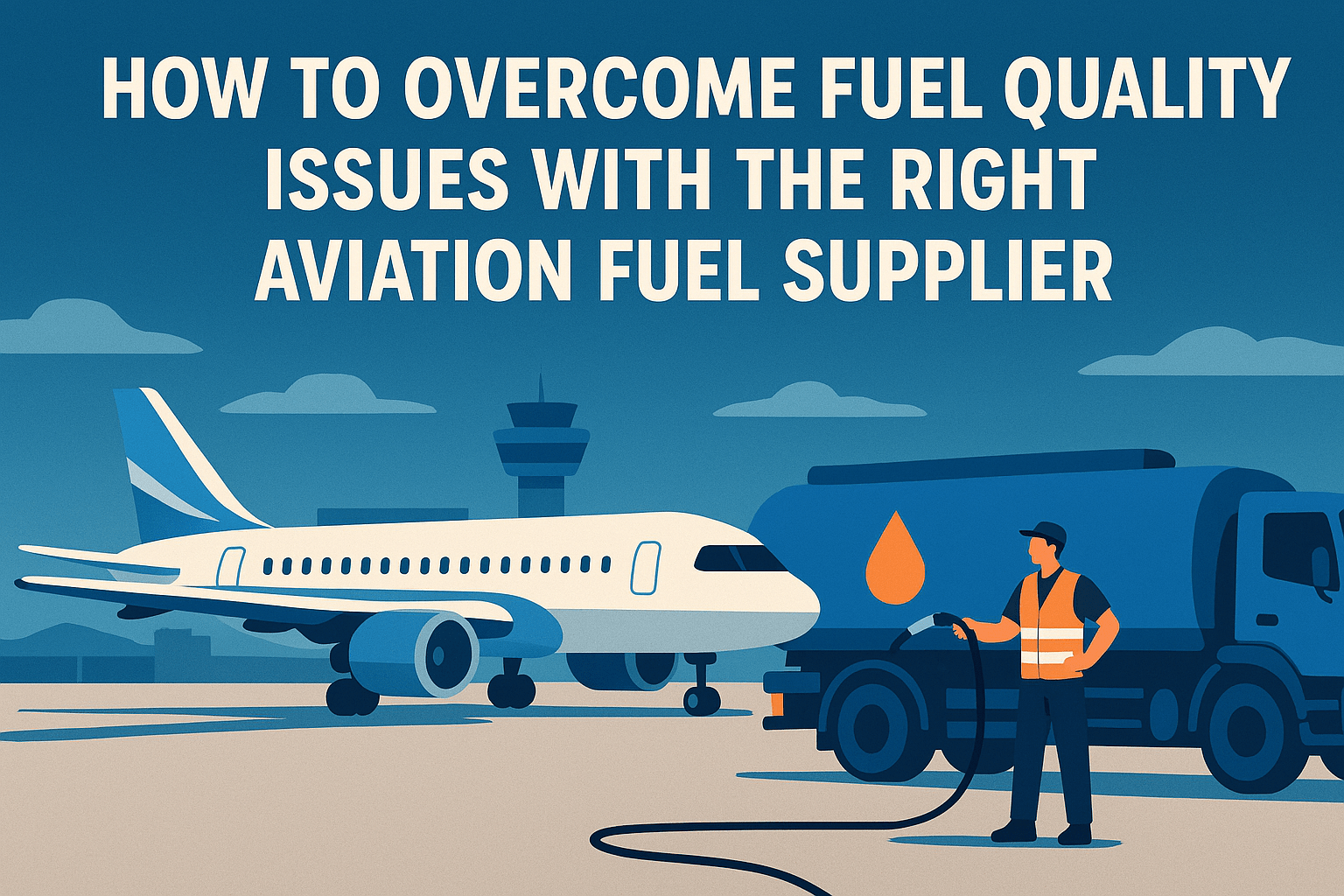
Safe flying requires several factors, one of which is having clean and high-quality fuel in your plane. The low quality of fuels can bring disastrous results, including engine problems and flight delays. On the positive side, you can eliminate all these hassles by simply selecting the fuel supplier you want to work with.
Aviation fuel is the lifeblood of your aircraft. Just as you can never put bad water in your car's radiator, you cannot put suspect fuel into your plane's tanks. Water, dirt, and other contaminants present in bad fuel may destroy or shut down your engine during flight.
When it comes to low-quality fuel, you will be spending on maintenance, emergency maintenance, and even life-threatening experiences in the air. That is why the decision regarding a company that will provide you with fuel is among the most important steps that a pilot or aircraft owner can take.
So, before we discuss solutions, what are the most frequent problems with fuel quality that your aircraft can experience?
Fuel water
The biggest adversary of fuel is water. It may enter fuel tanks as condensation, breach of fuel caps, or improper storage at fuel stations. Water with fuel may cause engines to sputter, lose power, or quit altogether. This water freezes up and clogs fuel lines even in cold weather.
Dirt and Pollution
During storage or transportation, dust and rust may get into fuel reserves. These tiny particles may cause fuel filter and pump clogging and damage to engine parts. Problems can be enormous due to even minor pollutants.
Stuck up or Stale Fuel
The fuel does not last forever. It will degrade and turn into gummy substances that become stuck to the engine parts over time. This is particularly common with planes that remain idle for an extended period between flights.
Wrong fuel type
Misusing the correct grade of fuel can damage the engine. Some engines need high-octane fuel, and some work well on aviation gas. An error in this matter may prove expensive and hazardous.
Fuel suppliers are not equal. When selecting someone to fill your aircraft, consider the following factors.
Examine Their Reputation
Begin by inquiring of other pilots and aircraft owners about their experiences. An excellent supplier will be customer-oriented and provide recommendations. Seek suppliers who have been in business for many years and have a clean safety record.
Examine Their Storage
Good suppliers of quality fuel maintain their fuel tanks in good condition. They should have systems that prevent water from entering and filters to eliminate pollution. Request them to show you their stores.
Request Testing Processes
Good suppliers conduct regular tests on their fuel to ensure high quality. They must be capable of presenting you with the test results and their quality control procedure. Unless they can or will do this, seek a different solution.
Inspect their equipment
Use clean trucks, hoses, and pumps for fuel delivery to ensure safety and environmental friendliness. Even the best fuel can be contaminated with dirty equipment. A competent supplier will maintain their equipment in a clean condition.
When negotiating with possible fuel suppliers, important questions should not be avoided. These are some of the most important ones.
What is Your Period of Testing Your Fuel?
A good supplier should conduct daily or even more frequent fuel tests. Water, contamination, and other quality factors should also be regularly inspected and monitored to ensure optimal quality.
What is The Source of Your Fuel?
Be aware of the source of your fuel. Reputable suppliers' fuel comes directly from large refineries, and they can track its path to your aircraft.
What happens when something goes wrong?
Ask what the supplier will do if you find that the fuel has quality issues. The good suppliers will accept responsibility and assist in resolving any issue that their fuel has caused.
Do You Insure?
Ensure that the fuel supplier you use has adequate insurance. This will cover your aircraft if their fuel damages yours.
Some red flags will help you discover suppliers to avoid.
Too Good to be True Prices
When the prices of one supplier are significantly lower than those of the others, there may be an explanation. They may be cutting costs by taking shortcuts in quality or safety.
Poor Communication
When a supplier is difficult to find, never returns your calls, or cannot answer simple questions about their fuel, then move on. A good business relationship warrants good communication.
No Quality Documentation
Any credible fuel vendor must be able to provide records of their fuel quality testing. This is one of the biggest red flags if they cannot or refuse to give this information to you.
Dirty Facilities
When their storage tanks, trucks, or other equipment appear dirty and poorly maintained, it may be that their fuel is not being treated correctly.
After securing a reliable supplier of fuel, strive to develop a healthy relationship with them.
Become a Good Customer
Pay your invoices promptly, double-check their personnel, and act by their rules. A good customer typically receives more services and is given priority.
Maintain Contact
Maintain a healthy communication with your supplier. Communicate with them regarding changes in your flight schedule or fuel requirements.
Give Feedback
If any issues with the quality of fuel or service are observed, report them immediately. Good suppliers are eager to hear about problems so they can correct them.
The process of selecting an aviation fuel supplier does not revolve around price. It is looking for a partner that knows that your security depends on the quality of their product. Research to identify questions and build relationships with suppliers who meet your safety and quality standards.
Yet, it is preferable to remember that quality fuel will never cost more than low-quality fuel, which, in some cases, may cause engine issues, changes in flight planning, or other safety-related concerns. Get a reliable supplier, and you won't have to worry about running out of anything when flying.